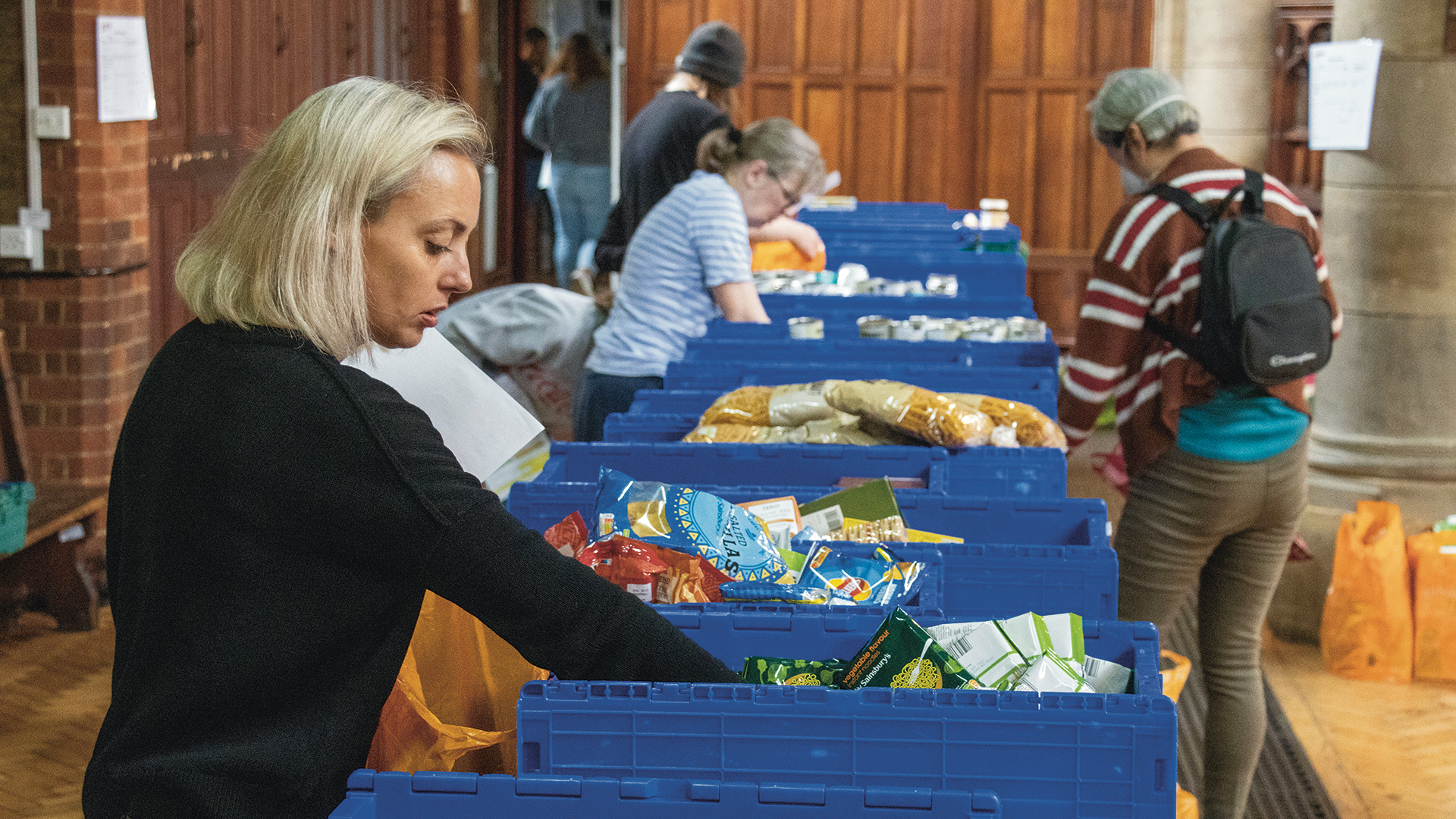As winter settles in, there are many things we’re worried about at the food bank. How will we cope with the rise in numbers, already at last winter’s peak? How are our guests going to manage, with so many already at rock bottom, having already gone through at least one cruel winter of suffering and deprivation? How can we supply the increasing demand when donation levels are down and prices are rising?
And one increasingly urgent concern, how will our volunteers cope with the emotion strain? Food bank work has never been easy. It’s physical – lugging boxes, taking in deliveries, hauling bags in and out of collection points, setting up tables. But it’s the emotional pressure that sometimes feels unsustainable.
Change a Big Issue vendor’s life this Christmas by purchasing a Winter Support Kit. You’ll receive four copies of the magazine and create a brighter future for our vendors through Christmas and beyond.
At the recent Independent Food Aid Network (IFAN ) conference, this concern came up again and again. Many food bank managers talked of how they were at breaking point, and how they weren’t sure how they could cope with the relentless exhaustion and pressure of, what’s certain to be, the toughest winter so far. At our food bank, we’ve set up monthly counselling sessions. Other food banks have similar initiatives, some even setting up helplines for volunteers.
Every week we deal with people at their lowest ebb; we hear stories of the most extreme suffering. The sadness and pain is, at times, unbearable. And many situations are unexpected and impossible to prepare for. A couple of years ago, a regular guest came to the food bank, covered in blood. She was clearly in shock. An argument with her ex-partner had escalated, following an argument about money. Fearful for her own safety, she had attacked him with a glass. She left him on the floor in his flat, bleeding, and then came to the food bank (in her words, her safe space). The police and ambulance were called, they attended the injured man in his flat, took him to hospital, and arrested our guest at the food bank. Many volunteers still talk about that day.
- Diary of a food bank manager: ‘Last week we registered a 91-year-old man’
- Diary of a food bank manager: People don’t have enough for essentials, so what chance for hope?
In the past, we would deal with crisis situations once every couple of months or so. But now, it’s a regular occurrence. In the midst of the clatter and bustle of the food bank, a volunteer will come up and quietly say that a guest has said they’re considering taking their own life. Thanks to training, we have guidance in place to deal with this. There’s a quiet area at the back of the church, where a guest can be taken to ring the crisis helpline. But it’s never easy and you are constantly fearful that these efforts won’t be enough.









